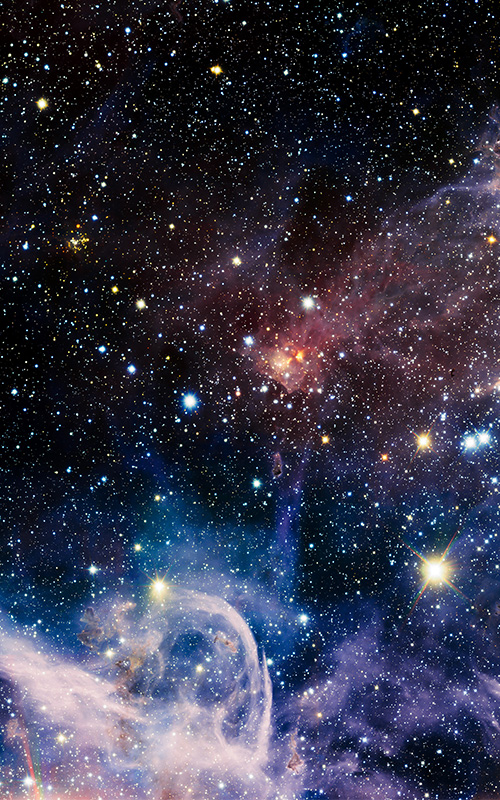Purusha Sukta – Hymn of Creation
Purusha Sukta (Hymn of Creation)

The Purusha Sukta is a hymn of the Rigveda that delineates creation as an evolution of the Cosmic Being (Purusha) into the various components of the universe. The imagery is one of the “Yajna”, “hawan” or “agnihotra”, an ancient Vedic ritual where a fire is lit and offerings are made into it. It is more popularly translated as a fire sacrifice. The body of the hawan is the wood (samidha) and, when set ablaze, the offerings made into it consist of clarified butter (ghee) and a mixture of dried herb, root and grain (samagri). In this hymn, creation is depicted as a cosmic hawan where the sacrificial fire is eternal, beginning less and endless phenomenon. The very body of the hawan, the wood or samidha, is constituted of the limbs of Purusha into which the Supreme Purusha (Cosmic Being) makes offering of its very own being, which offerings then become transformed into all creation.
The Purusha Sukta begins thus: ‘A thousand heads has Purusha, thousand eyes and a thousand feet; pervading this earth on every side, he fills all of space and extends beyond it. Purusha is all there has been and will be, so mighty is his greatness that we are but a fraction of his being. He is indeed greatness and greatness is he, the one born of the other. He strides to cover every side, spreading east and west to encompass that which eats and that which eats not. He formed the creatures of the air and animals both wild and tame. From him were cattle born, those with two and those with a single row of teeth. Also were born the classes of men, the head being those of learning, the arms being those who protect, the belly being those that feed and sustain and the feet being those that labour and support. The moon was his mind, the sun his eyes, the airs were the breath, the sky was fashioned from his head, the mid –air from is navel, earth from the feet and the airs from the ears; thus were the worlds born. The strips of wood as layers of fuel were the limbs, those that performed the bodily functions, the sensory organs and the mind and soul.” (Adaptation of the translation by Ralph Griffih – The Hymns of the Rigveda).